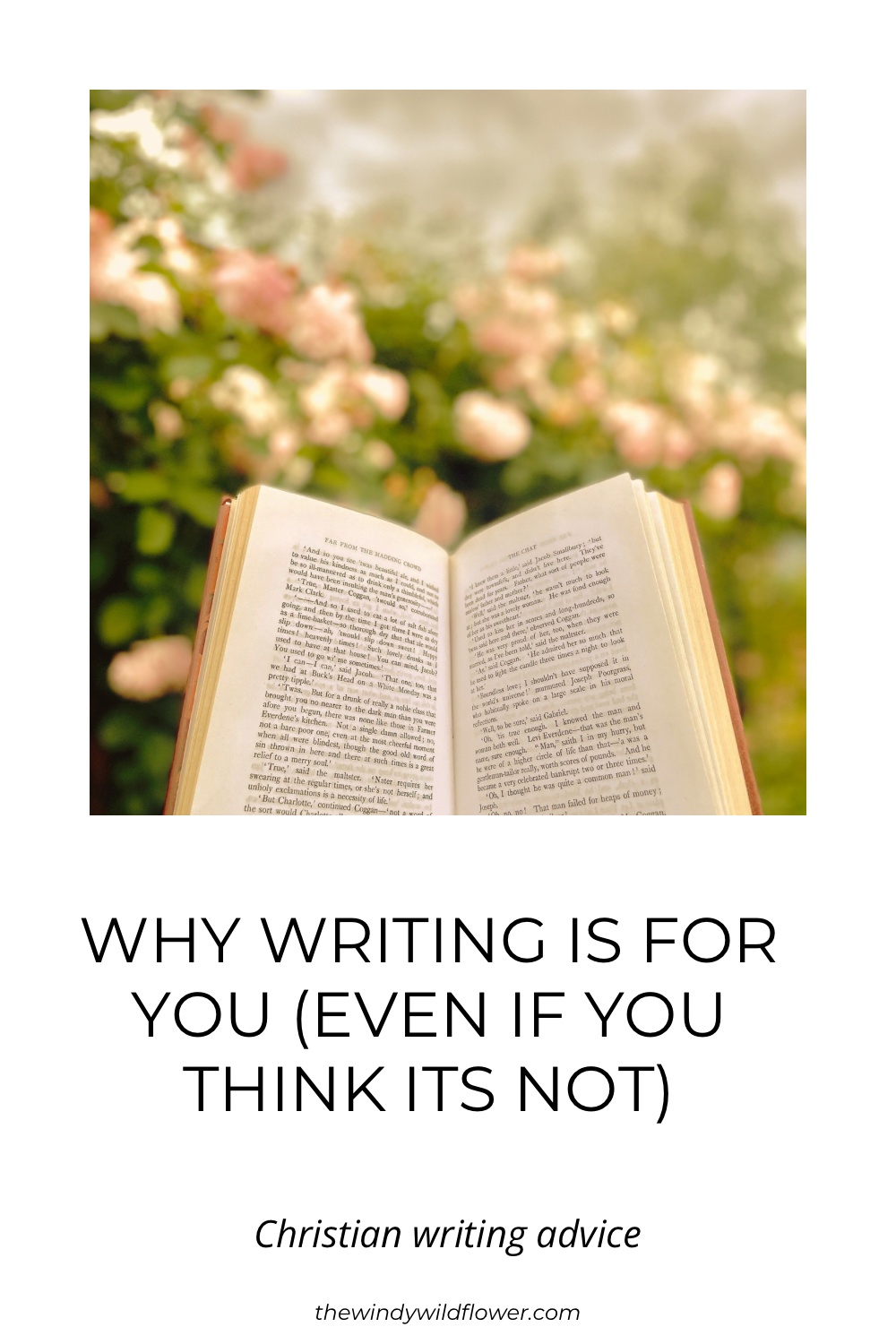Why writing stories is for you (even if you tell yourself it’s not)
For thousands of years, writing has been one of the primary ways we communicate. Story has existed even longer.
Even if you’ve never written, you’ve been telling stories for your whole life. Stories to mum about how your sibling pushed you, stories about princesses and princes, stories to your friends about what happened to you last week, stories to family about how you met your husband. We tell endless stories in our lives, many of them a retelling of actual events. But what if you didn’t have to stick to the facts? What if you could make up something outrageous?
Writing has always held a special place in my life, and I don’t think I’d be the same without it. I have used writing as a way to have adventures I never could on earth, to process my emotions and hurt, and learn to work with God on something (Not to mention all the times God had spoken to me through my own writing).

Story isn’t just for the reader. It’s for the writer too. Story has changed my life, and it could change yours. It is a way to explore the world through a new lens. It’s the chance to experience something different, and see what it teaches us. Stories aren’t just stories (if they’re good ones), they’re lessons and testimonies. They help to shape a better world.
“Shape a better world? Made up stuff isn’t going to change the world.” One might say. But I beg to differ. Jesus himself used made up stories to teach people, and to give wisdom no one would understood otherwise. Everyone can relate to stories, everyone can understand them. Stories aren’t for all people, and that’s what makes them an incredible way to spread your message to the world.
If sharing something with the world isn’t on your agenda, there’s another reason to write.
Writing stories is good for the writer. It helps us understand the world better, and process what has happened (and is happening) to us in life. Similar to journaling, writing poetry, talking to someone about stuff, or prayer, writing stories is an effective way to work through things in our lives that need to be processed.
If you’re the tiniest bit ever so slightly convinced that you should write a story, but feel like it’s just too difficult. Let me convince you further.

Writing a story doesn’t have to be hard. Writing a story doesn’t mean writing a 400 page novel. Writing a story means anything from a few sentences, to a full length novel. There so much space in between. Start with a few sentences today, and see where it takes you.
- A five sentence story.
Grab a sheet of paper, notebook, phone notes, or anything you can write on. You have five sentences to write a super short story. Think carefully about what details you include, and see how much you can fit in the few words (much meaning interest not super long sentences – although you could do that too).
“Mary was a demure, raven haired milk maid who longed to see the ocean. A boy of 16 promised to take her in his hay cart, all the way to Dover. She longed for him more than the ocean, more than those waves. So when he never showed that May morning, her heart was broken, water, boy, and adventure- gone. Her cows gently nudged her to buy a ticket to Glasgow.”
My very short story. I felt very tempted to turn it into poetry, so had to purposely not pick the rhyming words. It is surprising how much you can relay in just a few sentences. What will yours be about?
- One paragraph story.
One paragraph gives a lot more wiggle room, but still leaves one careful of word choice and content.
“She was a demure, raven haired milk maid who longed to see the ocean. But more than the ocean, she longed for Bert Hammond to notice her. His head always so far down in his work, she thought he’d never look up to see her sparkling blue eyes. But one day he asked to take her to Devon – Devon! The ocean would meet her at last, and she would ride with Bert! But that Sunday morning in May, he never showed, his cart never came around the corner. Milk maid Julie felt her heart had broken, and she didn’t long for anything any more. But those docile beasts she milked each morning slowly convinced her to buy a ticket. A ticket to Glasgow. It was the opportunity for a new life, away from the place Bert Hammond had broken her heart.”
This is quite a long paragraph as you can see, and not technically grammatically correct (needs a few paragraph breaks), but we get the point. A longer story, but still tight.
- One page story.
I think you know already what to do. One page, one story. I would suggest maybe writing it out physically or on a document so that you can see how long a page is. Or you could Google page word counts for a page.
No example here, as that would truly blow out the length of this post.
From here you could keep working up in length, or decide shorter form stories are what you like. If writing many words is overwhelming to you, why not try out writing a children’s book, where there are fewer words needed. If you’re crafty you could also illustrate some pictures to go along with it. And if you’re even more crafty, you could make it up into a little book and give it to someone small.
If you are still not convinced that writing is for you, I’m impressed you made it this far down the post. I’d encourage you to write a five sentence story just for fun!
If you need more writing advice or inspiration, you can browse my other posts, check out the YouTube channel, or have a listen to The Windy Wildflower podcast.
May your writing journey be filled with much joy of creating and purpose.
